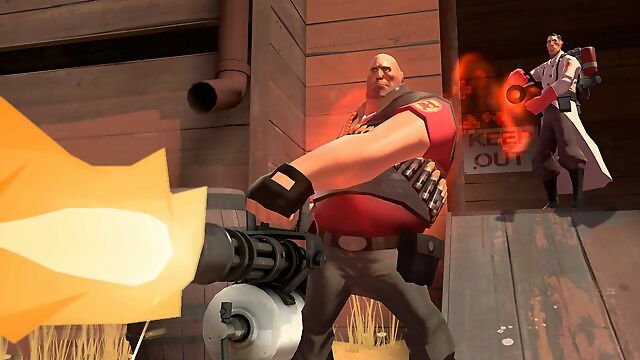Changing the Balance of Power in Gaming
Palworld has hit the planet by storm, outpacing even the biggest Sony PlayStation exclusives despite being available with Game Pass. And that’s pretty fantastic.
Not because of the game specifically. Firstly because I haven’t had chance to look into it yet, and secondly because anything that promises even a hint of a Pokemon game that’s capable of something modern was always going to be huge. It’s just that, bafflingly, nobody thought to do it.
Palworld was developed and published by Pocket Pair, an aptly named team that’s small enough to not even have their own Wikipedia page. That’s not to say they’re not notable – they made Craftopia, a decently popular game that looks legally distinct from a certain other Nintendo property. Don’t worry though, it’s not just the house of Mario they’re drawing inspiration from. They’re working on an art-themed Among Us clone (that actually sounds good fun).
This plucky little company has done something that wouldn’t have been possible a year or two ago – they’re outselling even the biggest players in the industry. Like Baldur’s Gate 3 last year, Palworld has hit that combination of streamers, online buzz, imagination and mainstream coverage that marketing people around the world dream of. You can’t manufacture it – not unless you’re willing to make a Pokemon game with guns.
There’s one adjective I haven’t used for Palworld yet and that’s good. Because it almost doesn’t matter. The hype, the buzz is all that you need. There wasn’t a $200m budget, or an almost equal spend on trailers and billboards. This is just the latest in a long line of games proving that the balance of power in this industry is over.
Gaming is Changing
In leaked court documents, Xbox’s Phil Spencer talked about the state of AAA gaming.
“We see that the top franchises today were mostly not created by AAA game publishers. Games like Fortnite, Roblox, Minecraft, Candy Crush, Clash Royale, DOTA2 etc. where [sic] all created by independent studios with full access to distribution. Overall this, imo, is a good thing for the industry but does put AAA publishers in a precarious spot moving forward.”
And it’s hard to argue. If you need to invest hundreds of millions of dollars into your games just to maintain the cinematic status quo that has become the selling point of those titles, that’s not ideal. If someone with a quarter of the time and budget (and maybe less) can then outsell you just because it hit the zeitgeist, it removes your ability to pivot. This is massively precarious. Imagine the impact if God of War 3 bombed.
Luckily for the Sonys of the world, there’s no golden elevator. There isn’t an algorithm that you can follow that guarantees you a game that sells six million copies in a matter of days while bringing in a bunch of sub money too. Unlike the film industry, where very few Blair Witch Projects massively outearn their budget, it is becoming increasingly common for the world’s most successful games to not be released by EA or Sony or Microsoft, but by a studio you’ve never even heard of.
This is good news. The AAA industry is bloated and has to play things too safely. It is not sustainable.
Resistance to Change
I’m going to end this article with a related but slightly tangential thought. Following the Xbox Developer_Direct, social media were flooded with armchair analysts picking apart the graphics of each project with a hungry fervour. I saw the words “PS2 game” bandied about. Usual fanboy nonsense.
Firstly, all that does is fire up the likes of Naughty Dog to spend hundreds of millions chasing animation when they could be building more games, but more importantly, these people are insane. The most successful games – things like Palworld that somehow break through – don’t chase graphical clout but speak to something more simple.
Maybe when this little knot of contradiction works its way out, we’ll have a healthier gaming industry. Ya know, one that doesn’t take a good chunk of a decade to get games out. If only people stopped bickering over the minutiae of graphics and then buying things where it doesn’t even matter we could solve a problem or two.




